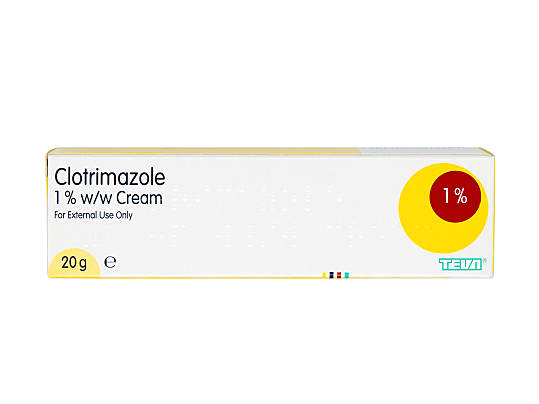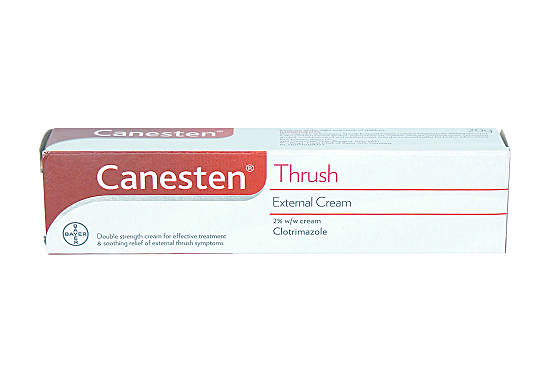Thrush Treatments for Women
Get thrush treatment with free and fast delivery.
Prices from £7.99
Simply fill in a brief consultation questionnaire and one of our doctors will review your request today.
Thrush is a common yeast infection. It is usually harmless but can be uncomfortable and can come back quite often. Thrush isn’t a sexually transmitted infection, but it affects both men and women.
Antifungal medication containing the active ingredient clotrimazole or fluconazole can treat thrush.
In stock. Prices from £15.99
In stock. Prices from £15.99
In stock. Prices from £17.99

In stock. Prices from £9.99

In stock. Prices from £14.99

In stock. Prices from £7.99

No results found.
Please check your spelling or try another treatment name.



Vaginal Thrush Symptoms and Treatment
Who can get vaginal thrush treatment online
If you think you may have vaginal thrush, you can get treatment online if you:
- are female
- are experiencing thrush symptoms
- are not pregnant, and there is no chance you may be
How to get thrush treatment
If you fit the points in the list above, then you can request thrush treatment with us online. The process is quick and easy – just follow these simple steps:
- Fill out a short online assessment about your health and lifestyle
- Select your preferred treatment option
- A ZAVA doctor will check your assessment to see if your chosen treatment is right for you
- If your selected treatment is right for you, then it can be posted to your preferred address or you can collect it from a local Post Office instead
Common side effects of thrush treatment
All medication can cause side effects. Below is a list of common side effects of thrush treatment:
- Itching, discomfort, irritation
- Rash
- Blisters
- Swelling
- Redness
- Skin peeling
If you’re using the pessary (vaginal tablet/capsule):
- Pain in the abdomen or pelvic area after using the pessary
If you’re using the oral tablet (capsule):
- Headache
- Stomach discomfort
- Diarrhoea
- Nausea
- Vomiting
-
-
Thrush is a fungal condition which can easily be treated and prevented. Vaginal thrush is caused by the Candida species of yeast.
There is always a small amount of Candida in the vagina, which is not harmful. But if it multiplies, it can cause the thrush infection.
Vaginal thrush affects most women at some point in their lives. In fact, 75% of females experience thrush during their lifetime. Although it affects the vagina, thrush isn’t classed as an STI because it’s rarely spread through sex.
Thrush is not serious and it does no harm to your body, but it is often uncomfortable.
Once you start treatment, thrush usually clears up in a few days. It does not cause any long-term effects, but it can come back.
-
-
Men and women can get thrush. It can affect the:
- vagina
- penis
- armpit
- groin
- space between the fingers
- mouth
We don’t offer treatments for oral thrush, but we do offer treatment for thrush in men.
-
-
The Candida species of yeast which causes thrush is already naturally occurring in the vagina. However, if it starts to multiply it can cause thrush. You are more likely to develop thrush if you:
- use perfumed soaps/shower to wash your genitals
- have uncontrolled diabetes
- use tampons or sanitary towels which are scented
- are pregnant
- have recently been taking antibiotics
- have a weakened immune system.
Thrush likes to grow in warm and moist conditions. It usually happens when the balance of bacteria changes.
So, for example, pregnancy causes a change in hormone levels which alters bacteria levels in the vagina, often leading to thrush.
Another cause may be damage to your skin, so if you use a perfumed soap to wash with this may lead to thrush.
-
-
The symptoms of vaginal thrush include:
- itching and irritation around the vagina
- stinging or soreness when you pee or have sexual intercourse
- white discharge which doesn’t usually smell
If you’re unsure whether you have vaginal thrush or not, then your discharge can help you find out. Normal vaginal discharge:
- has no unpleasant smell
- is clear or white
- is wet and slippery
- is thick and sticky
Most women have vaginal discharge and it is nothing to worry about. In fact, it’s your vagina’s way of keeping itself moist, clean and protected from infection.
However, if your discharge is white and has an appearance like cottage cheese then it could be an indication of thrush. You should seek medical advice if your discharge:
- smells fishy
- is green, yellow or frothy
- occurs with blisters or sores
- occurs with bleeding or pelvic pain
You don’t need to tell your partner you have thrush unless they are experiencing symptoms, too. If your partner is male, their symptoms may present as:
- irritation, burning, redness or itching on the tip of the penis or around the foreskin
- difficulty pulling back the foreskin
- a discharge like a cottage cheese under the foreskin
-
-
You can get checked online if you think you have thrush. Simply fill out a quick online assessment questionnaire to get started.
Your GP can also check you to determine whether you have thrush. They will discuss your symptoms with you – they may even run further tests.
Thrush does usually go away by itself for many people. But if your symptoms are uncomfortable, treatment could help.
However, you should get yourself assessed in case your symptoms are not thrush. For example, if you have an STI and you leave it untreated this may have serious health or fertility consequences.
-
-
We offer four treatment options:
- Clotrimazole 2% cream
- Clotrimazole 1% cream
- Clotrimazole 500mg pessary (vaginal tablet) and Clotrimazole cream combo
- Fluconazole 150mg capsule and Clotrimazole cream combo
Clotrimazole is the generic name for Canesten and other thrush or antifungal medication. It is a cream which is applied to the skin or as a pessary. Clotrimazole creams help to reduce itchiness or soreness around the outside of the vagina or vulva.
Some women also find that an ordinary emollient (moisturiser) is just as good at relieving these symptoms. If you are having any symptoms of discharge as well as the itching, an internal treatment like the clotrimazole pessary or the fluconazole capsule would be better for treating your symptoms.
Fluconazole is an oral antifungal medication used to treat vaginal yeast infections such as thrush. The medication works by stopping the yeast from growing.
-
-
You can avoid getting thrush by:
- using water and an emollient soap substitute to clean the skin surrounding your vagina
- only washing your vaginal area once per day
- avoiding perfumed soaps, shower gels, wipes and vaginal fresheners
- avoiding tight-fitting underwear, tights and trousers
- keeping your blood sugar level under control if you are diabetic
- applying moisturiser around the skin of your vagina a few times a day (beware that these can weaken condoms)

Dr Kathryn Basford is a qualified GP who works as a GP in London, as well as with ZAVA. She graduated from the University of Manchester and completed her GP training through Whipps Cross Hospital in London.
Meet our doctorsLast reviewed: 19 Oct 2018
-
Accord Healthcare Limited. (2018). Fluconazole 150mg Capsules [online]. EMC. Available at: https://www.medicines.org.uk/emc/files/pil.4438.pdf [accessed 17 October 2018].
-
Bayer. (2017). Canesten Thrush External Cream 2% w/w Cream [online]. EMC. Available at: https://www.medicines.org.uk/emc/product/2206/pil [accessed 17 October 2018].
-
Bayer. (2017). Clotrimazole Cream 1% [online]. EMC. Available at: https://www.medicines.org.uk/emc/product/2598/pil [accessed 17 October 2018].
-
Bayer. (2018). Canesten Thrush Combi Pessary & External Cream 500mg/2% w/w Pessary & Cream. EMC. Available at: https://www.medicines.org.uk/emc/product/5532/pil [accessed 17 October 2018].
-
Bilardi, J., Walker, S., McNair, R., Mooney-Somers, J., Temple-Smith, M., Bellhouse, C., Fairley, C., Chen, M and Bradshaw, C. (2016). Women’s Management of Recurrent Bacterial Vaginosis and Experiences of Clinical Care: A Qualitative Study. PLoS ONE, March; 11(3). [online] Available at: https://pubmed.ncbi.nlm.nih.gov/27010725/. [accessed 13th May 2021]








